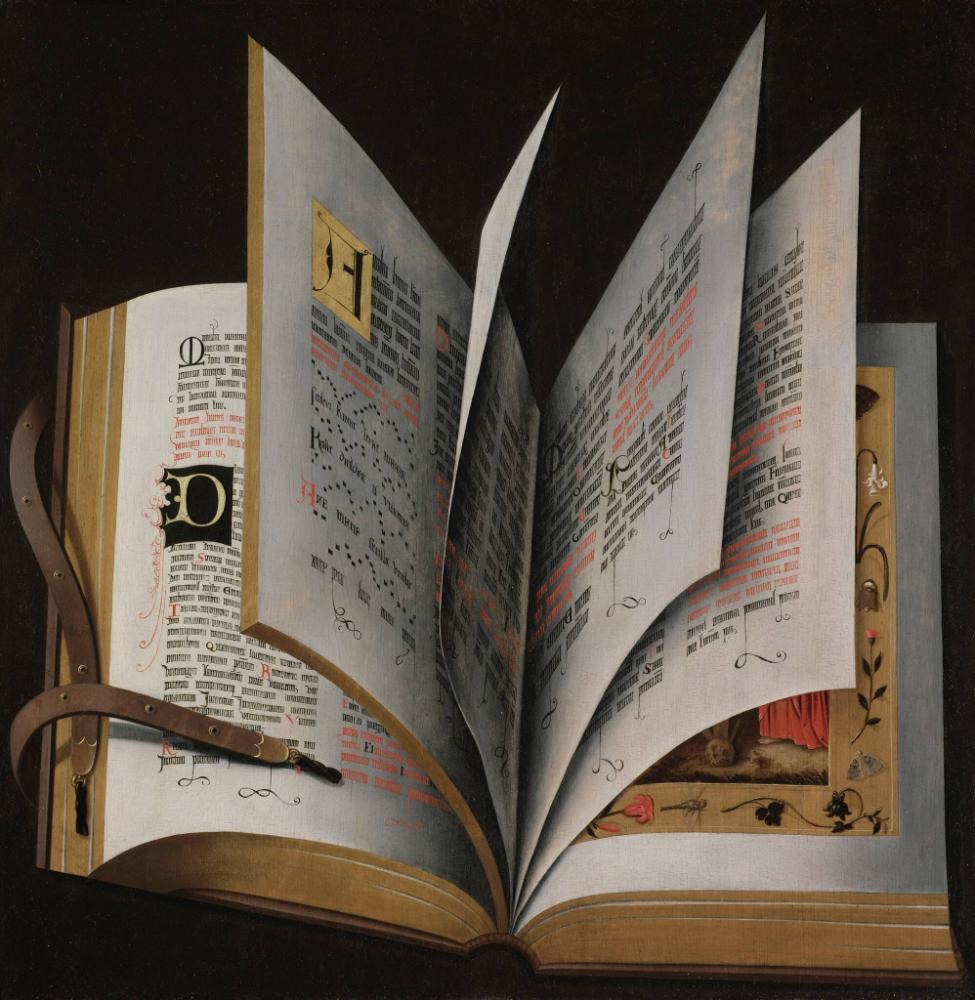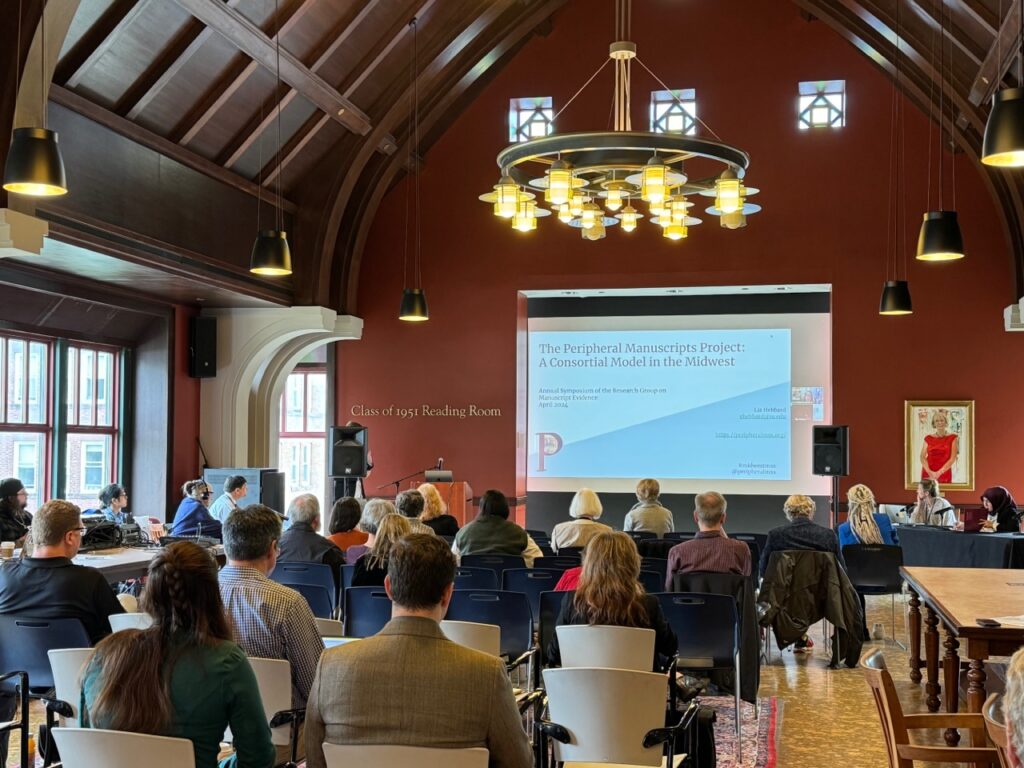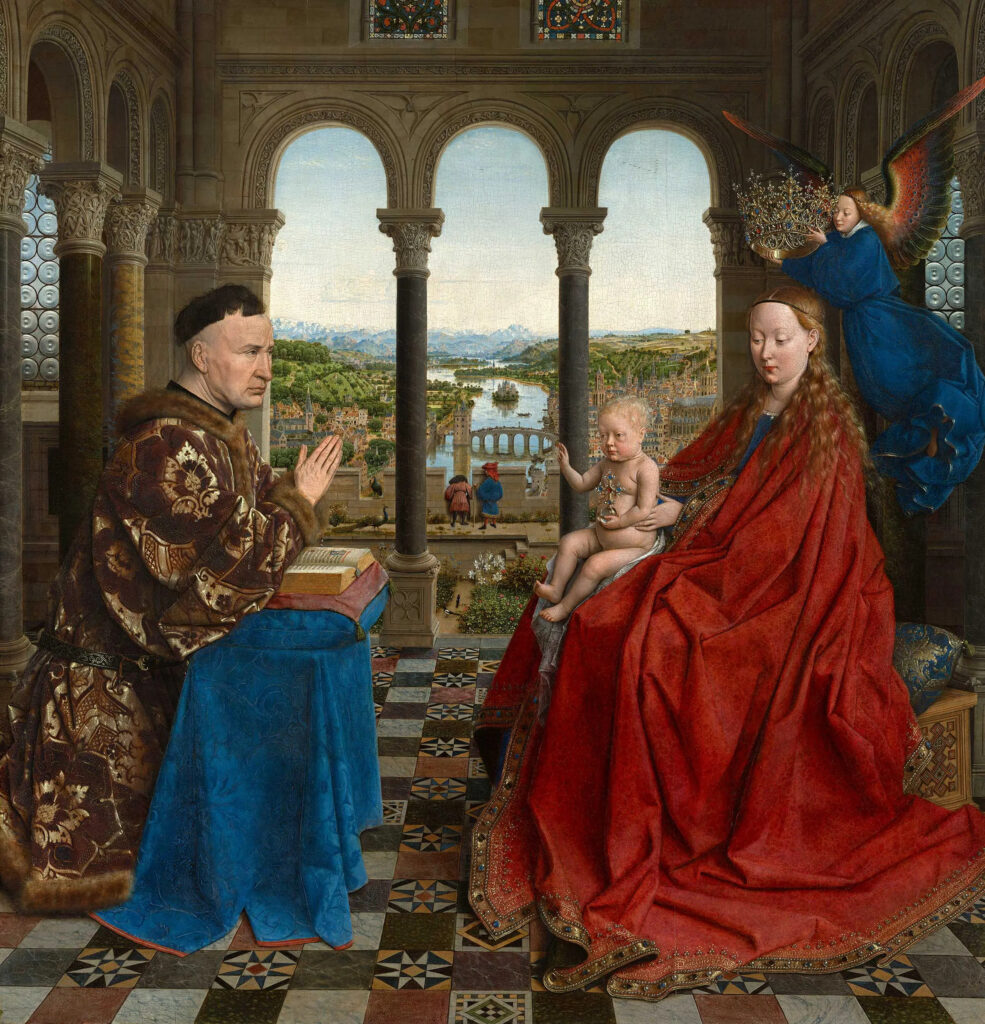It has been a busy spring for the BASIRA team, as we work to publicize the database, demonstrate exciting new research discoveries, and build a robust user base. On one remarkable day in March 2024, Nicholas Herman gave an online tour of the BASIRA search interface to about 60 participants via Zoom as part of the Schoenberg Institute for Manuscript Studies’ Online Lecture program, while Barbara Ellertson monitored the lively chat stream. Later that day, they jointly conducted a workshop at the Renaissance Society of America annual meeting in Chicago, with Nick connecting virtually and Barbara presenting in person. One rewarding take-away was the significant participant interest in using the BASIRA search interface for university teaching. To that end, we have created a page with sample assignments for teaching with BASIRA at undergraduate and graduate departments, across a variety of disciplines.

In April, Barbara traveled to Vassar College in Poughkeepsie, New York, to give a paper at the Research Group on Manuscript Evidence’s Spring 2024 Symposium, “Between Past and Future: Building Bridges between Special Collections and Teaching for the Liberal Arts”. Her paper was entitled “Windows & Mirrors:Viewing the Frances L. Loeb Art Center Collection through the Lens of BASIRA.” Among the insights gleaned from research on this small but interesting teaching collection was an Italian Virgin and child from 1408 with an Italian inscription on a banderole—remarkably early for a vernacular inscription on a painting. The weekend’s symposium was held, in part, to honor the donation of manuscripts from the Nicholas B. Scheetz collection to Vassar College; it was rewarding to find that some of BASIRA’s images of book bindings echo some book coverings in the Scheetz collection.

Kalamazoo, Michigan was the next stop for Barbara, who took part in a panel at the International Congress on Medieval Studies entitled “Old Books, New Technologies.” Her paper was entitled: “Artists’ Views of Book Culture.” Other papers in this session were given by Fiona Baldwin on a digitized antiphonal and by Melissa Reynolds on an initiative to digitally reconstruct the manuscript library of Henry Dyngley, a sixteenth-century English bibliophile. Thanks to the organizing work of the Early Book Society, it was a lively and engaging panel.
In early June, Nick will be presenting at a study day at the Insitut national d’histoire de l’art in Paris organized by the Musée du Louvre to mark the cleaning and restoration of Jan van Eyck’s Madonna of Chancellor Rolin, and an associated exhibition (runs to 17 June 2024). His paper, entitled “Jan van Eyck and the World of Books,” will explore some of the insights gained from a close examination of the incredibly detailed volumes present in some of the painter’s most famous works. These depictions, present in BASIRA, include books in the Washington Annunciation, Madonna with Canon Joris van der Paele, and Ghent Altarpiece.

We are undertaking these and other promotional efforts to spread the word about BASIRA, in order to recruit casual and expert users, enthusiasts who may be interested in working with us to create new records, and instructors who may be inspired to use BASIRA as a teaching resource. We’ve heard anecdotally about BASIRA being used in classrooms in Philadelphia, Leeds, and at the École des Chartes in Paris. If you’ve encountered similar anecdotes, or if you’re using the BASIRA database for your own research or teaching, please write and let us know.
Lastly, we, like so many others in the field of digital humanities and book history, mourn the tragic death of Will Noel that occurred at the end of April. It was Will who, in his capacity as the inaugural director of the Schoenberg Institute for Manuscript Studies, provided initial support and enthusiasm for the project’s deployment to Penn in 2019. Although our hearts are heavy about this senseless loss, we hope to honor Will’s vision by freely sharing our data as far and wide as possible.
